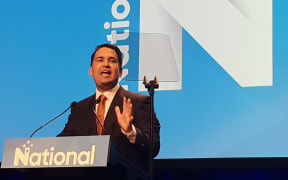By Professor Peter O'Connor*
Opinion - The new National Party policy of smaller class sizes is at face value sensible politics designed to appeal to parents and teachers.

Photo: 123RF
It seems common sense that smaller classes means greater individual attention and therefore better learning.
There is some international evidence that smaller classes does make a difference in lower socio economic areas where teachers are dealing with multiple learning issues associated with poverty.
However, what we also know is that one single policy shift such as smaller class sizes isn't really a solution, it is no magic bullet.
What is needed is a wide strategy that addresses the needs of children.
Teaching isn't an exact science and it is difficult to separate out the interconnected strands to know what works best to ensure quality teaching in schools.
For example, we know teacher student relationships are of vital importance, so are particular teaching strategies that engage and excite interest for children in a broad rich curriculum.
Smaller class sizes provide an opportunity for different more engaging teaching. The key however is getting teachers to change their practice once you get the smaller class.
We need to remember too that the most important number for predicting success at school is the number of books in a child's home not the number of kids in the classroom.
The social and cultural capital they have, in other words what a child brings into a class is more important than what happens in a classroom.
Of course one of the impacts of smaller classes is we will need more teachers. It's ironic at best that the single most damning legacy of the previous government in education is the teacher shortage. No word as yet about how they would attract and retain teachers to meet the policy shift.
If the new policy was accompanied by the National Party genuinely committing to eradicating child poverty, affirming a belief in quality public education, a rich broad curriculum not stifled by endless testing, if it promised strong support of children with learning needs, and committed to an end of the teacher bashing it indulged in for nine years, then the rather cynical populism of the new policy might have been greeted more warmly than it has been by the teacher unions.
After nine years of pulling in contrary ways it feels meaninglessly late.
Smaller class sizes accompanied by a renewal of charter schools and national testing speaks more of a confused muddle rather than a new direction for a National Party still not trusted by the education sector.
*Professor Peter O'Connor of the University of Auckland


